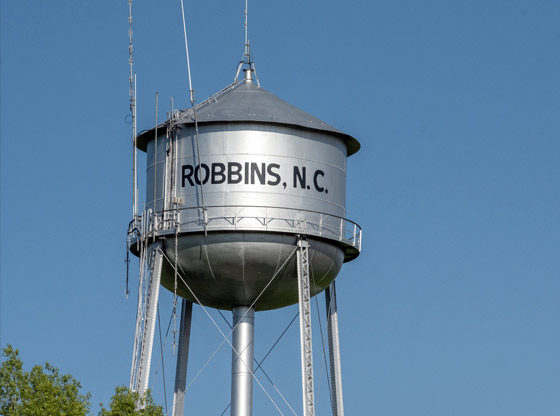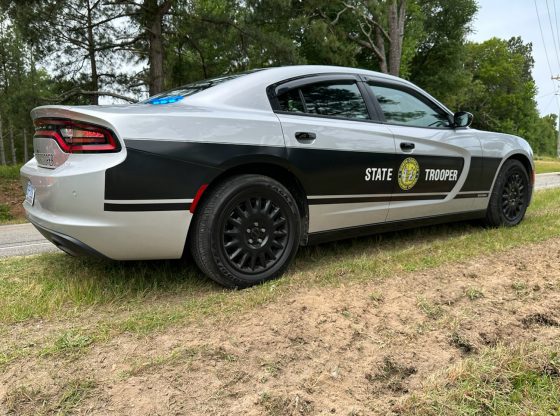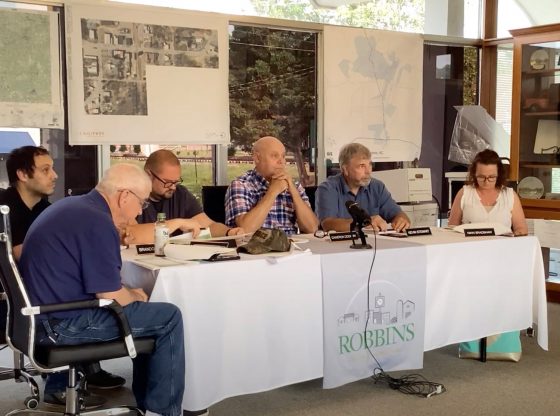Robbins commissioners discussed Moore County’s initiative to control water countywide at its Jan. 11 regular meeting.
Town Manager Clint Mack said the major concern was the debt service increase.
The county’s $180 million water project would demand Robbins’s water rates immediately increase by 25%, with a full rate increase over eight years.
Mack said Robbins makes 100,000 on water now, and to pay for county services, the town would lose its revenue if it signed on with county water.
“We have the highest rates in the county already,” Mayor Cameron Dockery said about the county’s plan to own the reservoir and Robbins’ assets and wanting the town to relinquish all control to Moore County.
“It ain’t going to happen. I say we keep on trucking. We take care of ourselves,” board member Kevin Stewart said.
Board member Lonnie English expressed his views and was opposed to the idea.
Stewart said he would like to pay off the 1996 wastewater plant loan because it would show the town’s borrowing power and show local government they are financially capable.
Town officials will meet for a water workshop before the February financial workshop meeting.
During the business section, commissioners voted unanimously to increase safety on Oak Street with speed bumps. They discussed three speed bumps, with one in the curve, to decrease speed.
The town manager reported on firearm and illegal drug confiscations over the last two weeks during routine traffic stops, but none of them were local and were passing through the town.
One stop resulted in 58 grams of methamphetamine laced with fentanyl, which is a three-month supply for one person.
“We need to make sure there’s not a vacuum of supply,” Clint said.
Citizens are urged to continue reporting suspicious behavior to law enforcement.
~Written by Sandhills Sentinel journalist Stephanie M. Sellers; BS Mass Communications and Journalism, MFA Creative Writing. Stephanie is an author of young adult fiction, including When the Yellow Slugs Sing, Sky’s River Stone, and a scholarly fiction on North Carolina’s Tuscarora natives, which is available at the Special Collections Library at UNC-CH.



















